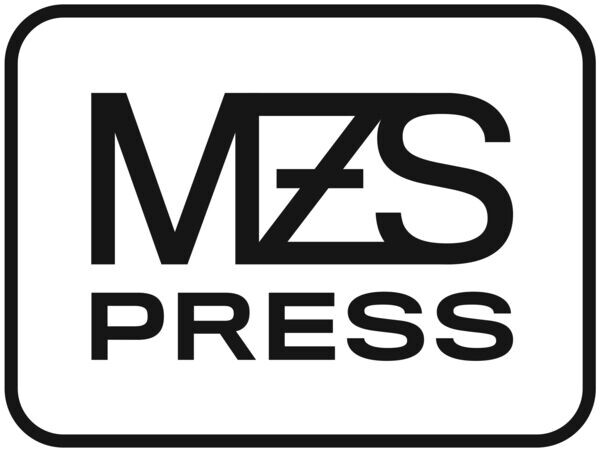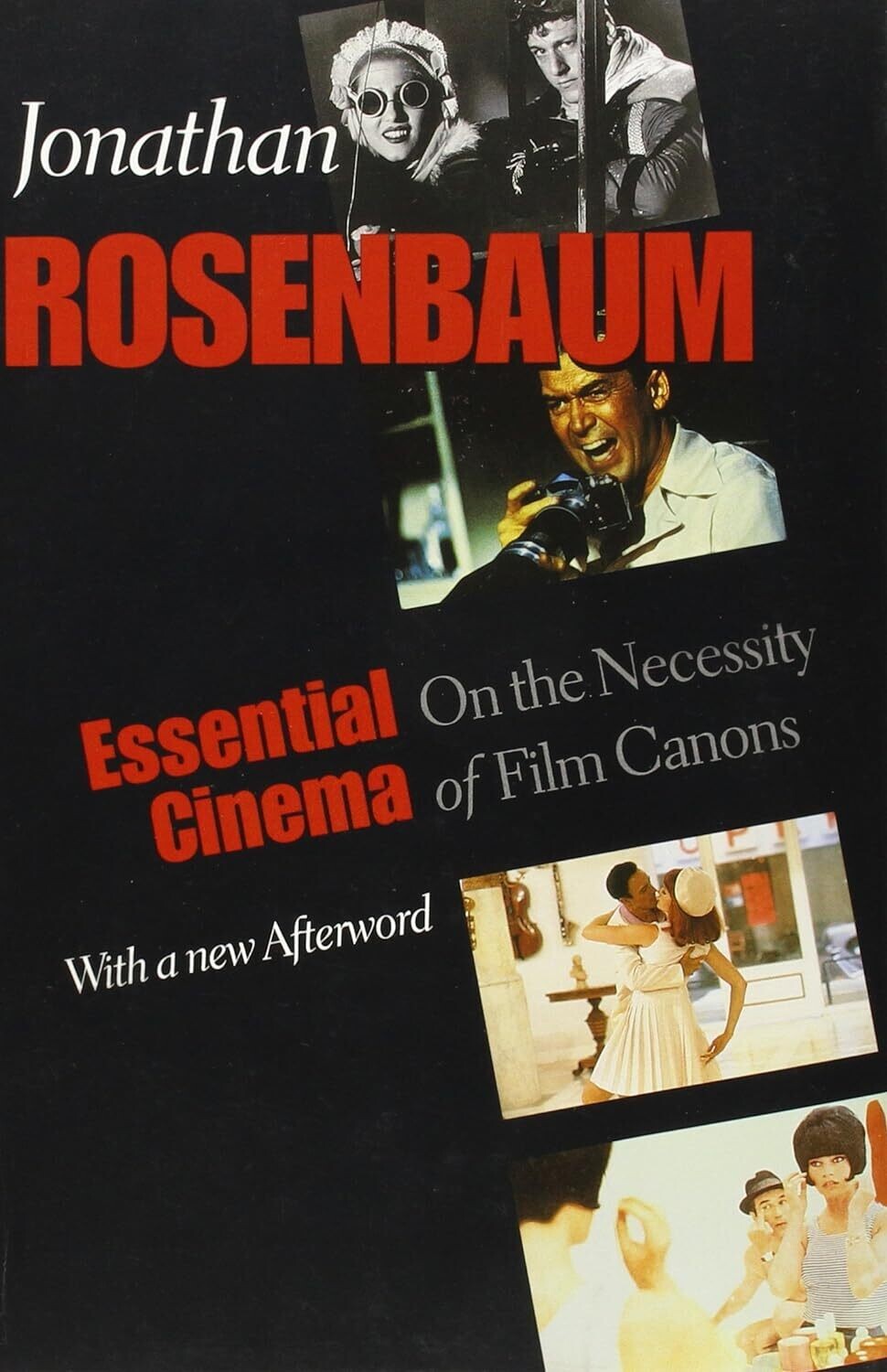

The Arts Bookstore of the Internet
Created by Matt Zoller Seitz
Directed by Judith Carter
“If you only read the books that everyone else is reading, you can only think what everyone else is thinking.”
Haruki Murakami
Photo courtesy Getty Images via Unsplash
Essential Cinema: On the Necessity of Film Canons (Paperback, NEW)
In his astute and deeply informed film reviews and essays, Jonathan Rosenbaum regularly provides new and brilliant insights into the cinema as art, entertainment, and commerce. Guided by a personal canon of great films, Rosenbaum sees, in the ongoing hostility toward the idea of a canon shared by many within the field of film studies, a missed opportunity both to shape the discussion about cinema and to help inform and guide casual and serious filmgoers alike.
In Essential Cinema, Rosenbaum forcefully argues that canons of great films are more necessary than ever, given that film culture today is dominated by advertising executives, sixty-second film reviewers, and other players in the Hollywood publicity machine who champion mediocre films at the expense of genuinely imaginative and challenging works. He proposes specific definitions of excellence in film art through the creation a personal canon of both well-known and obscure movies from around the world and suggests ways in which other canons might be similarly constructed.
Essential Cinema offers in-depth assessments of an astonishing range of films: established classics such as Rear Window, M, and Greed; ambitious but flawed works like The Thin Red Line and Breaking the Waves; eccentric masterpieces from around the world, including Irma Vep and Archangel; and recent films that have bitterly divided critics and viewers, among them Eyes Wide Shut and A.I. He also explores the careers of such diverse filmmakers as Robert Altman, Raúl Ruiz, Frank Tashlin, Elaine May, Sam Fuller, Terrence Davies, Edward Yang, Hou Hsiao-hsien, and Orson Welles. In conclusion, Rosenbaum offers his own film canon of 1,000 key works from the beginning of cinema to the present day. A cogent and provocative argument about the art of film, Essential Cinema is also a fiercely independent reference book of must-see movies for film lovers everywhere.
ABOUT THE AUTHOR
Jonathan Rosenbaum grew up in a Frank Lloyd Wright house in Florence, Alabama (1943-59), the son and grandson of movie exhibitors. Attended The Putney School (1959-61), Highlander Folk School (summer 1961), Washington Square College (1961-62), Bard College (1962-66, the best part of his education, along with Highlander). Wasted three years in graduate school, mainly draft-dodging (1966-68, State University of New York at Stony Brook, English & American Literature, M.A.+ everything but a dissertation). Moved to Paris in 1969, finished second unpublished novel and started working as a film critic. Hired by the British Film Institute to work for Sight and Sound and Monthly Film Bulletin; moved to London in 1974. Returned to the U.S. in 1977 to replace Manny Farber for two quarters at the University of California, San Diego. 1978-1979, wrote first book to be published, Moving Places: A Life at the Movies (Harper & Row, 1980), moved to New York and then to Hoboken.1983, taught for one semester at Berkeley, then moved to Santa Barbara to teach there. Basically, 1977-1987 was a decade in the wilderness, mainly working as an exploited freelancer. 1987-2007, lead film critic for the Chicago Reader, a wonderful job. Retired in 2007, started jonathanrosenbaum.com (later succeeded by jonathanrosenbaum.net); has been working as a mainly non-exploited freelance writer and teacher ever since.
REVIEWS
A virtuoso collection by one of the finest film critics currently active . . . His passions are unusually diverse . . . There's nothing here that won't enrich the reader in some way. If you have seen the film already, you will see it better. If you haven't seen it, you will want to.
―The Times of London
Rosenbaum's passionate, thoughtful, and richly informed advocacy of the films he cares about earns this book a place on any cinephile's shelf . . . Rosenbaum, an enormously erudite and deeply reflective viewer unbeholden to academic norms and taboos, is ideally positioned to propose a canon of great works . . . An essential guide.
―Boston Globe
Accessible without being dumbed down . . . Filled with perceptive insights and fascinating juxtapositions . . . A closing list of 1,000 favorite films is sure to spark debate among cineastes while offering a long checklist of films to watch.
―Publishers Weekly
- Publisher : Johns Hopkins University Press (June 1, 2008)
- Language : English
- Paperback : 472 pages
- ISBN-10 : 0801889715
- ISBN-13 : 978-0801889714
- Dimensions : 6.13 x 1.21 x 9.25 inches
About Our Store
MZS.Press is the online arts bookstore founded by author, critic, and filmmaker Matt Zoller Seitz and Directed by Judith Carter. It offers new, used, signed, collectible, and rare books on film, TV, music, photography, and the visual arts. The store was launched in 2019 on a different platform and has expanded to incorporate arts books published by MZSPress's private imprint: titles currently include Seitz's The Deadwood Bible: A Lie Agreed Upon and Dreams of Deadwood, about the HBO Western, and Walter Chaw's A Walter Hill Film.
Our deepest wish is to promote, encourage, and distribute work by small presses, academic presses, and individuals. Extraordinary work tends to get swallowed up on giant platforms like Amazon and Barnes & Noble. The titles featured here are personally selected by a group of curators and advisors, including Seitz and an array of critics, artists, journalists, educators, publishers, and arts mavens who are known for their ability to suss out what Seitz's jazz musician dad liked to call "the good sh*t."
In Honor of the greatest auteur of our time, Judith is using one of her favorite quotes by him.
"Every day, once a day, give yourself a present"
David Lynch (January 20, 1946-January 15, 2025)

About the Partners

Matt Zoller Seitz
Critic, Author, Filmmaker, MZS Press Creator
Matt Zoller Seitz is the Editor at Large and film critic of RogerEbert.com; Features Writer for New York Magazine and Vulture.com, Contributing Writer for D Magazine and Texas Highways as well as finalist for the Pulitzer Prize in criticism. His writing on film and TV has appeared in Sight and Sound, The New York Times, Salon.com, The New Republic and Rolling Stone. Seitz is the founder and original editor of the influential film blog The House Next Door, now a part of Slant Magazine.
Seitz has written, narrated, edited or produced over a hundred hours’ worth of video essays about cinema history and style for The Museum of the Moving Image, Salon.com and Vulture, among other outlets such as Texas Highways and AARP. His five-part 2009 video essay Wes Anderson: The Substance of Style was spun off into the hardcover book The Wes Anderson Collection. This book and its follow-up, The Wes Anderson Collection: Grand Budapest Hotel were New York Times bestsellers.
Other Seitz books include the New York Times bestsellers The Sopranos Sessions and Mad Men Carousel; TV (The Book), The Deadwood Bible: A Lie Agreed Upon, The Wes Anderson Collection: The French Dispatch and the new The Wes Anderson Collection: Asteroid City. He is also an interviewer, moderator, and film programmer who has curated and hosted film and TV presentations for the Museum of the Moving Image, IFC Center, San Francisco's Roxie Cinema, and other venues. In October 2024 he brought the legendary filmmaker Oliver Stone back to Dallas for a historic return to the city and the Texas Theatre, considered the biggest film event of Dallas in 2024 by Dallas Observer!
Judith Carter was in the Upscale and Luxury Hospitality Industry for most of her life. In 2004 she had a beautiful baby boy with Special Needs and put the pause on her career until 2017 to dedicate herself to him and then others, assisting and volunteering as a legal advocate ensuring the best medical care, evaluations and educations for Special Needs children and their families.
Matt and Judith were family friends for over 20 years. She was there with her family in support when his wife Jen passed away suddenly in 2006. Then just 6 weeks later while Matt was in Dallas; he and his Father, Dave, and Step-Mother, Genie, were there as support, when Judith was alone and her son received the first of many diagnoses that changed the trajectory of their lives. So it made sense in the turbulent year of 2020, Matt asked Judith to take over running the online store that has become MZS.press. The rest as they say is, "Their"-story.
